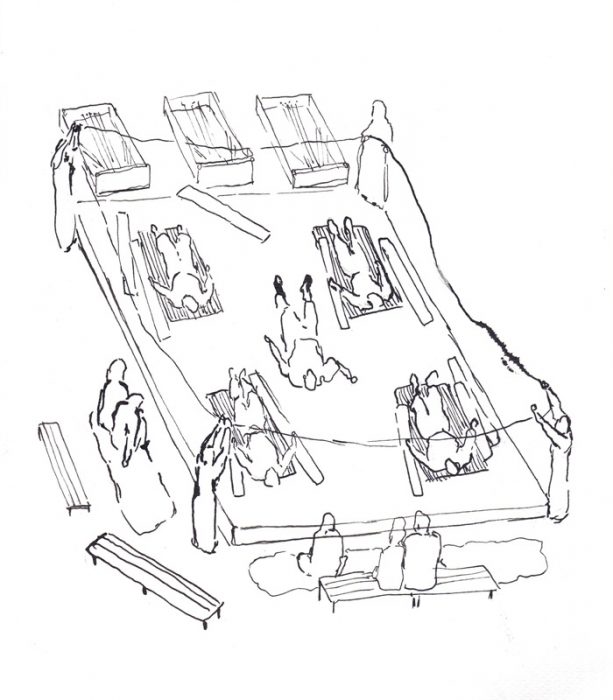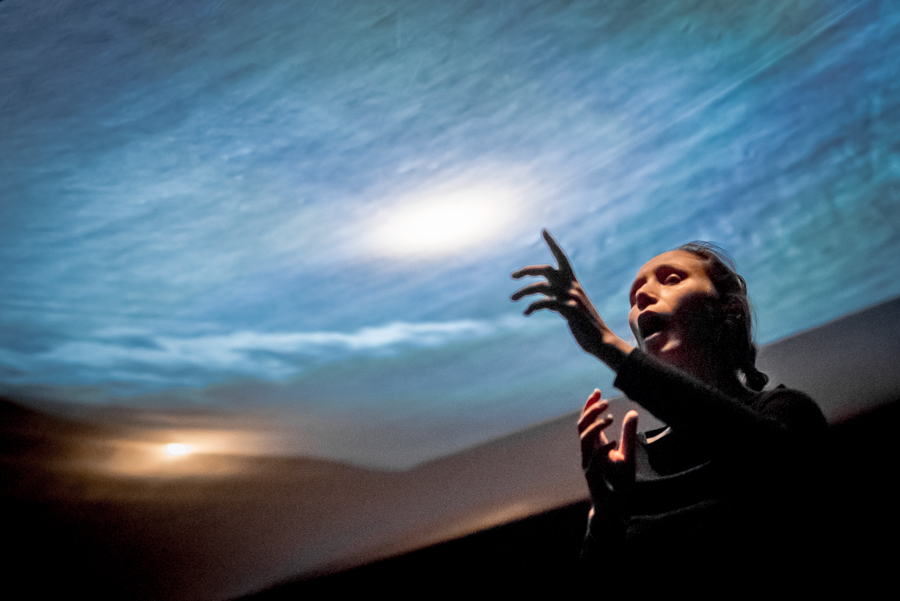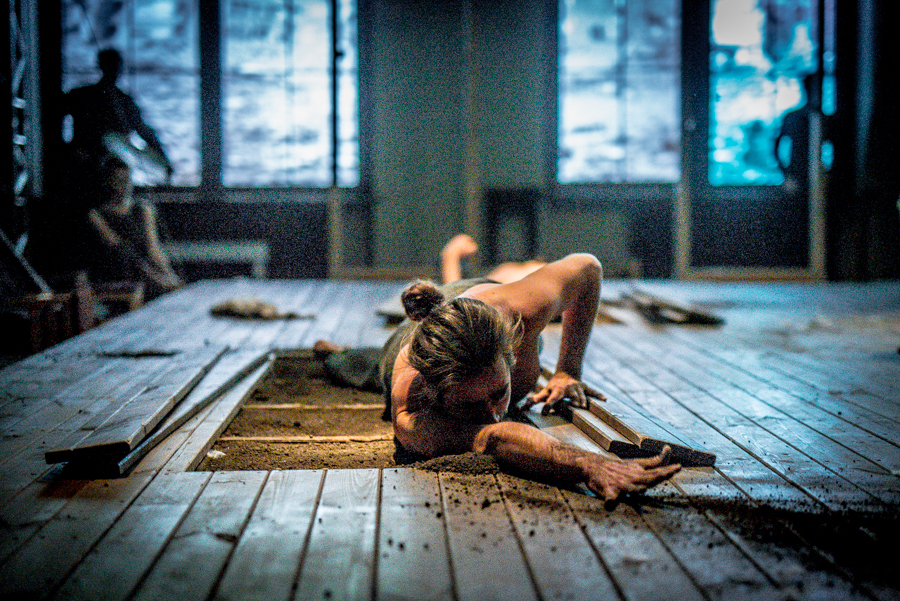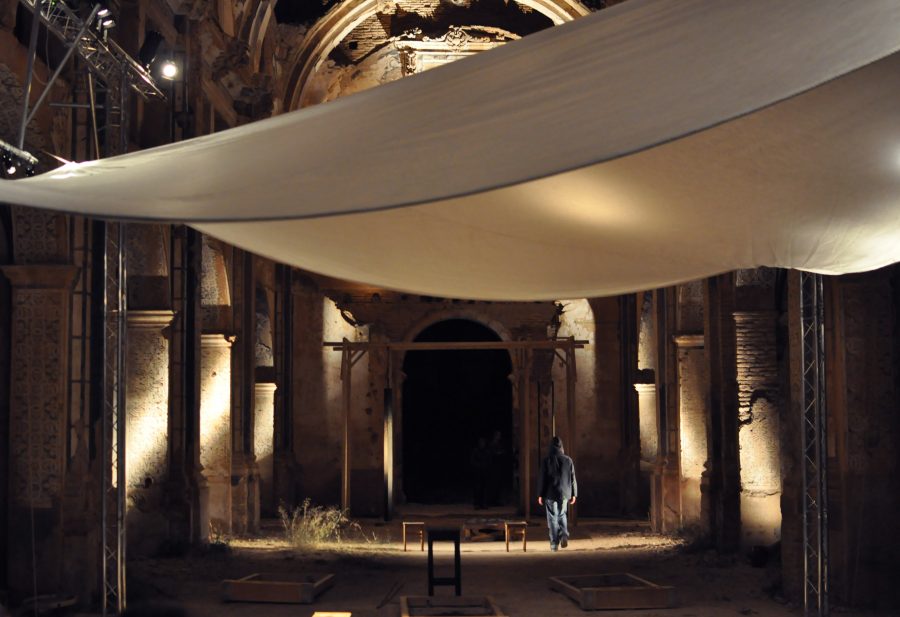Performance
Anhelli. The Calling
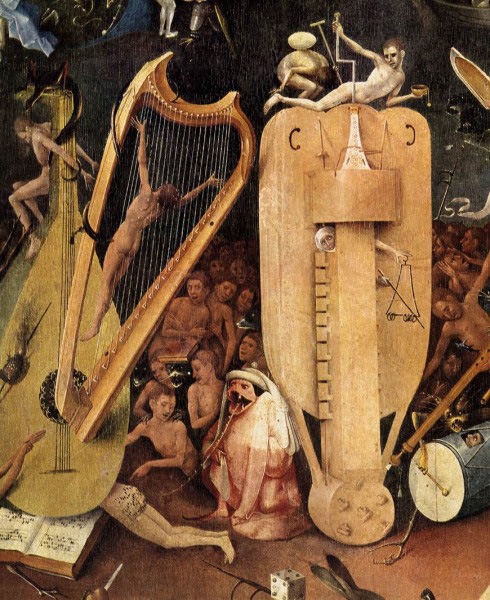
In the consecutive versions of the performance participated:
Anhelli: MATEJ MATEJKA
and
- NINI JULIA BANG
- DITTE BERKELEY
- PRZEMYSŁAW BŁASZCZAK
- TOMASZ BOJARSKI
- EMMA BONNICI
- ALESSANDRO CURTI
- JEAN FRANÇOIS FAVREAU
- KAMILA KLAMUT
- ALEKSANDRA KOTECKA
- JAROSŁAW FRET
- EWA PASIKOWSKA
- TOMASZ WIERZBOWSKI
Project leader: JAROSŁAW FRET
Lighting: MACIEJ MĄDRY

The premiere presentations of the performance took place at the Barbican Centre, London in September 2009, as the last part of the triptych Gospels of Childhood, shown within the POLSKA! YEAR in Great Britain
In October 2011 special version of the performance was presented in Belchite near Zaragoza, in ruins of San Augustino church in the historic part of the city that still bears traces of the Spanish Civil War (1936-1939).
A tribute to the Polish romantic poet, Juliusz Slowacki and his journey from Naples to the Holly Land, via Alexandria, Cairo and Damascus.
Anhelli’s theme is a phenomenon that Theatre needs to face in order to protect its essence and its place in this world. This is a theme of unity and disintegration of our life, our corporality, of our own selves. This is a theme of possession. Of making a vessel for the other, for a stranger’s life, even a future life, out of our own selves. This is a theme of illuminating, a theme of ‘over angeling’. This is a theme of being possessed by an angel.
How to make an angel transit through a human body; how to let that angel live there for a moment? In what musical form? In what vibration?
We live in cathedrals of our bodies, with ornamentation and gilding of facades, and with placement and relation to the others being of most importance. But the theme of Anhelli is calling for small country wooden churches where we stay enclosed in our aloneness. Closed within. Instead of cathedrals- small temples of the heart. Small churches of the body. Chapels and meeting halls. Here one calls spirits of their forefathers. And thus the unfinished forefathers’ eve project at the same `time transforms itself into a seance of calling the Angels. Their wings are not snow white. They are rather of the ashy, smokey grey of the ebbing souls.
One needs to involve their entire inner being, their entire life force to create vast space within oneself, create a void as empty as a Siberian abyss. So empty that it sucks in.
The musical core of the performance is based on Byzantine and Sardinian paschal hymns as well as Ortodox Irmoses.
Because I do not hope to know again
The infirm glory of the positive hour
Because I do not think
Because I know I shall not know
The one veritable transitory power
Because I cannot drink
There, where trees flower, and springs flow, for there is nothing again
Because I know that time is always time
And place is always and only place
And what is actual is actual only for one time
And only for one place
I rejoice that things are as they are and
I renounce the blessed face
And renounce the voice
Because I cannot hope to turn again
Consequently I rejoice, having to construct something
Upon which to rejoice
[Thomas Stearns Eliot, Ash Wednesday]
